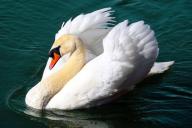Reptiles are different from mammals, so it's often hard to understand what they think or feel.
Meanwhile, there are still some signs that can help you understand that your pet lizard is ill.
Here's how you can understand that it's time to visit a vet.

Changes in Eating Habits
Pay close attention to your lizard's feeding behavior. A sudden decrease in appetite or a refusal to eat can be a sign of illness.
Keep track of the types of food your lizard usually enjoys and monitor any changes in its eating patterns.
Lethargy and Inactivity
If your lizard is typically active but becomes unusually lethargic, spending more time hiding and showing less interest in exploring its enclosure, it may be an indicator of illness.
Keep an eye on its general energy level.
Skin and Color Changes
Examine your lizard's skin. A healthy lizard should have smooth, vibrant, and evenly colored skin.
Dull, discolored, or patchy skin can be a sign of underlying health issues.
Respiratory Issues
Watch for any signs of breathing difficulties. Rapid, labored, or noisy breathing can indicate respiratory problems.
Additionally, if your lizard keeps its mouth open (gaping), it might be struggling to breathe properly.
Dehydration Signs
Ensure your lizard has access to fresh water.
If it's not drinking or exhibits signs of dehydration such as sunken eyes, wrinkled skin, or a general lack of hydration, this is a cause for concern.
Abnormal Droppings
Regularly check your lizard's droppings for any changes in consistency, color, or frequency.
Diarrhea, blood in the stool, or infrequent bowel movements can indicate digestive or internal problems.
Eye and Nose Discharge
If your lizard has discharges from its eyes or nose that are not clear or excessive, it could signify an infection, respiratory issue, or eye injury.
Mouth or Dental Problems
Examine your lizard's mouth for any signs of trouble. Swollen gums, mouth sores, or difficulty closing its mouth could indicate oral or dental issues.













